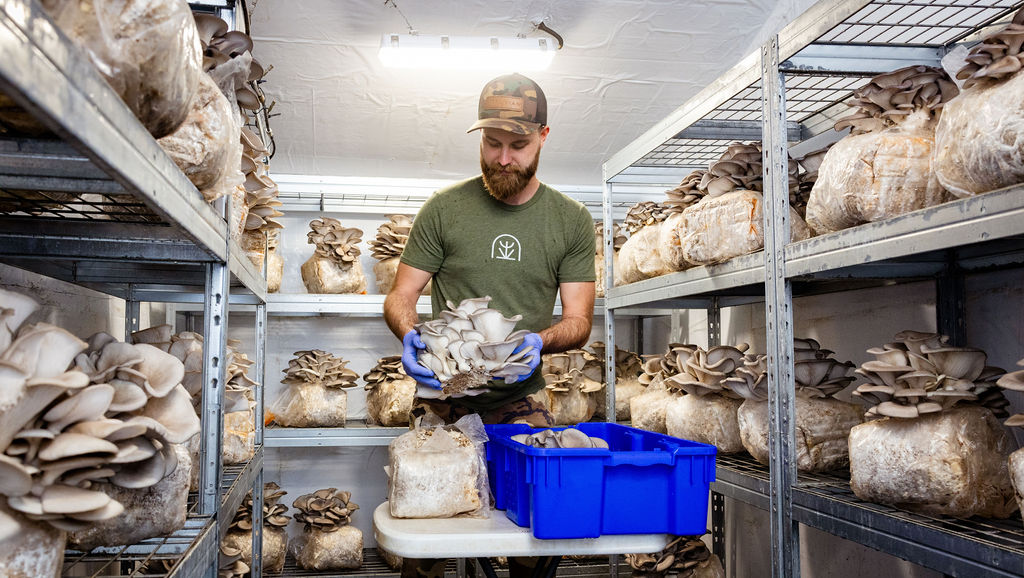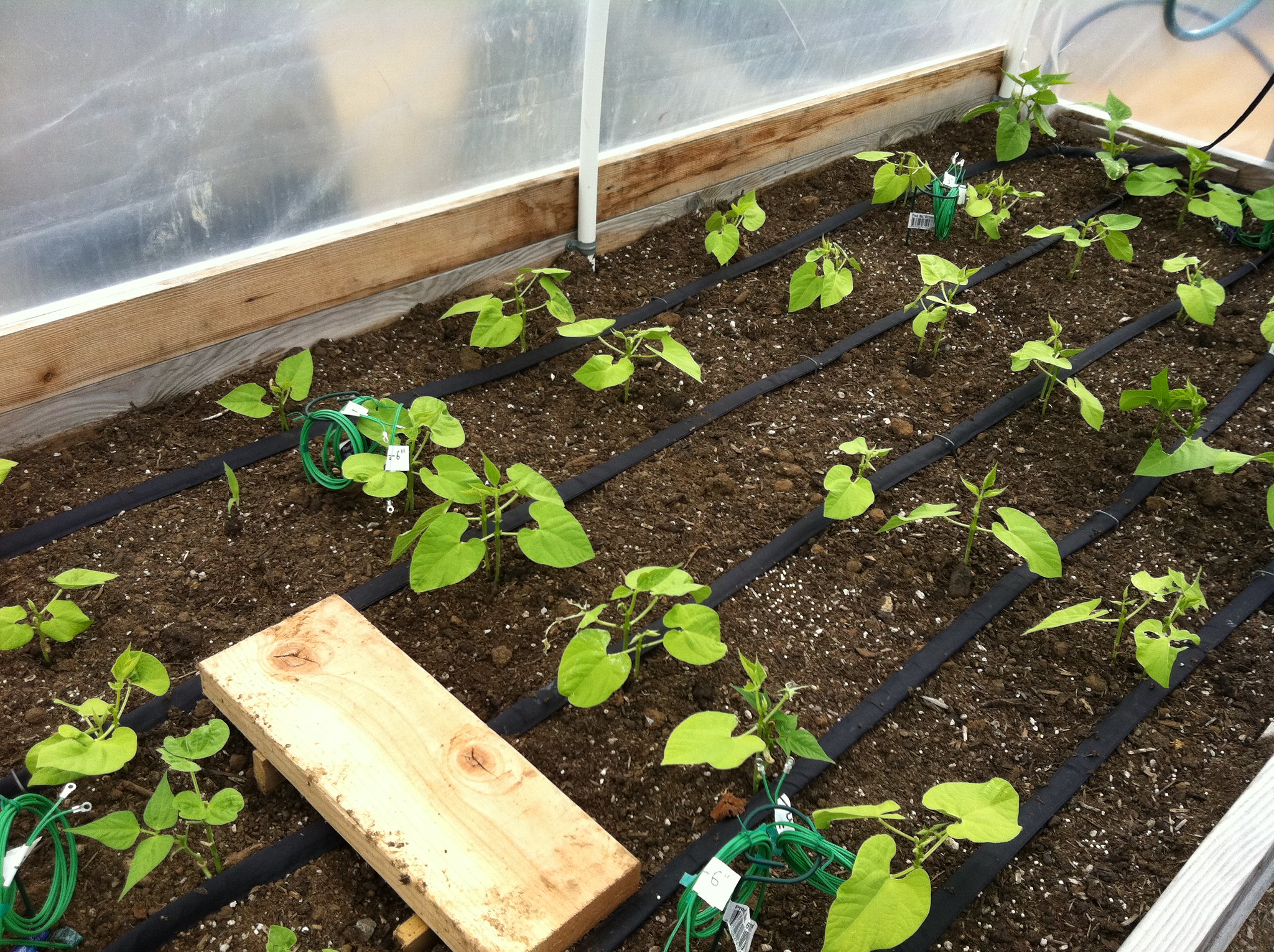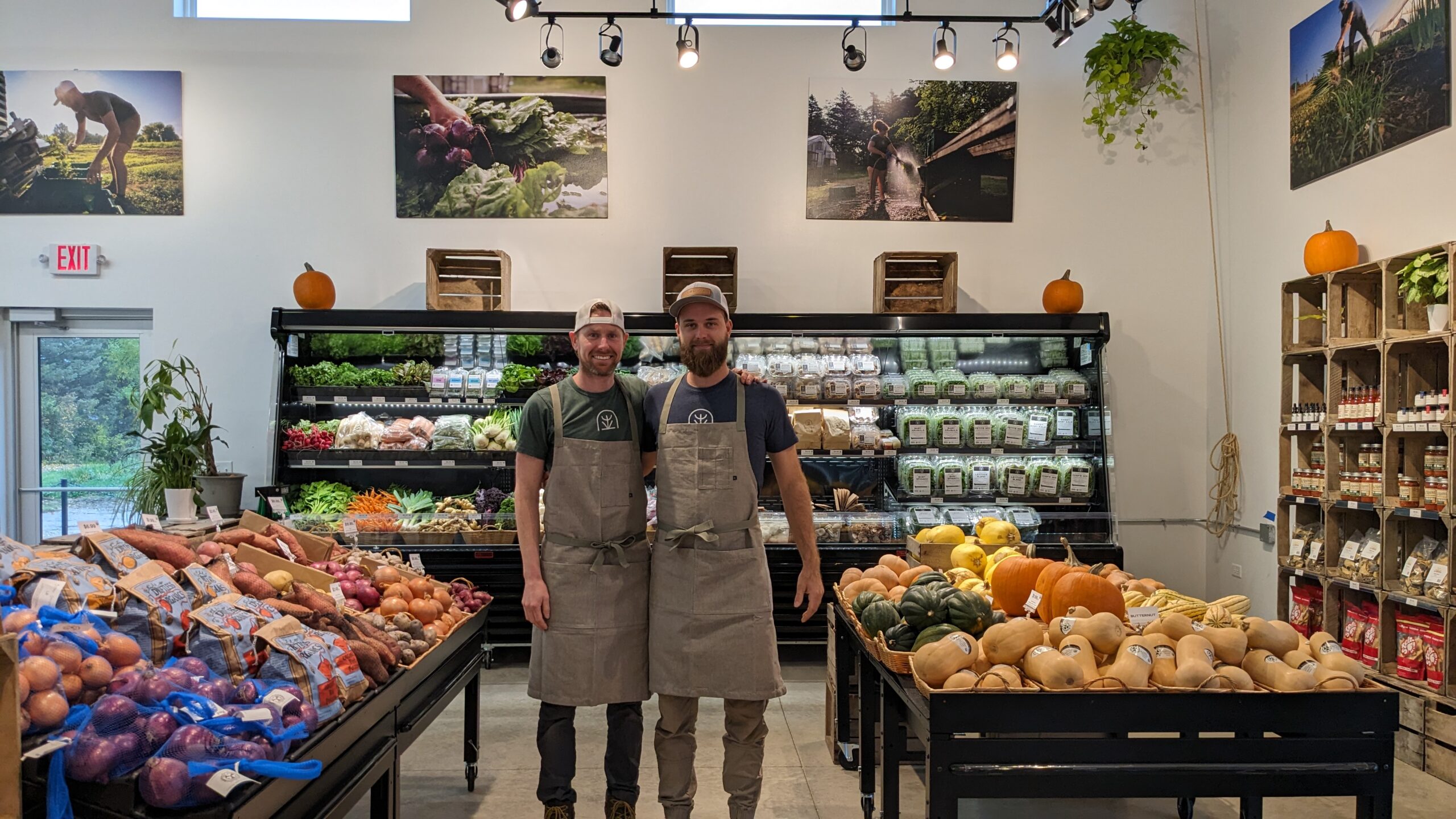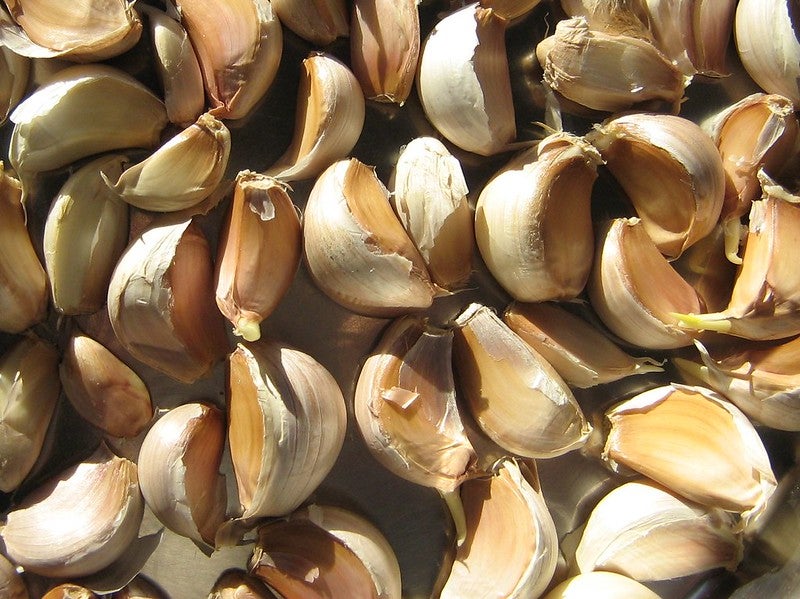As colder temperatures arrive in Wisconsin, gardeners may be surprised to learn that the growing season doesn’t have to end simply because they’ve put their shorts and sandals back in storage.
Recently Shawn Kuhn, the co-founder of Vitruvian Farms, a certified organic vegetable and mushroom farm in McFarland, visited “The Larry Meiller Show” to give advice to gardeners on how to extend the growing season.
Hoop dreams
News with a little more humanity
WPR’s “Wisconsin Today” newsletter keeps you connected to the state you love without feeling overwhelmed. No paywall. No agenda. No corporate filter.
Vitruvian Farms has roughly seven acres of farmed land, including about a third of an acre that Kuhn and his staff use to grow produce throughout the year.
On that parcel of land they use unheated high tunnels, also known as hoop houses, which are covered structures that protect crops from the elements.
“We don’t heat the tunnels at all,” Kuhn said. “We’re able to grow cold, hardy vegetables in unheated houses, basically November through March, just by selecting the right varieties and using the right practices.”
Kuhn suggested that despite the shorter days, additional light isn’t necessary. “It’s more about timing the crop growth,” Kuhn said. “When you’re growing in the fall or spring, crops can take three to six weeks longer to grow. So, we just kind of plan accordingly.”
Out in the cold
The staff at Vitruvian Farms prides itself on its year-round production of mushrooms, a practice that grew out of the heavy rainfall in the fall of 2016 that ended hopes that year of a good fall harvest.
“We grow all our mushrooms indoors in specialized fruit chambers,” Kuhn said. “They need anywhere from 80 percent to 90 percent relative humidity, so there’s constant mist being added into the rooms to keep that humidity high.”
Kuhn suggested the possibility of using a shipping container to grow mushrooms or vegetables indoors.
“One of our fruit chambers is actually an old shipping container,” he said. “I would recommend looking at getting an insulated one. If you’re going to grow mushrooms, I would make sure to use a refrigerated container that already has waterproof walls.”
For users of raised garden beds who would like to extend their growing season, Kuhn recommended acquiring wire wickets or PVC or metal electrical conduit.
“Just bend the metal or PVC and stick it into the soil of the raised bed, then cover that raised bed with a sheet of greenhouse plastic that has been treated to not break down with sunlight,” he said.

Using the greenhouse plastic does require some oversight: “You’d want to roll that cover back to let heat out and then roll it back on during nighttime,” Kuhn said. “But on a day that doesn’t get above freezing, you could keep that cover on throughout the entire day.”
Kuhn said the greenhouse plastic should get gardeners through mid-November for growing cold and hardy vegetables such as spinach, lettuce, kale, turnips, radishes, beets, and carrots.
Kuhn also recommended green onions as a crop that can survive a decent amount of cold, even the entire winter. “If you get a good blanket of snow, they don’t even need any protection,” Kuhn said. They’ll start growing again in the spring.”
No saturation
Adjusting the amount of watering is also key for extending the growing season.
“The main consideration is these plants are now growing a lot slower,” Kuhn said. “So as the growth slows, the amount of water that they need also slows down. You’re going to be looking to water your plants a lot less frequently than you do during the summertime.”
In fact, Kuhn said keeping the leaves of plants as dry as possible in the fall and winter is important because wet leaves and cold can lead to fungal diseases that can attack the leaves of plants and result in downy mildew or bacterial spots.

To combat those diseases, Kuhn advised using a drip irrigation kit or a wand that waters the soil and not the leaves themselves. Kuhn also suggested that plastic can be used in case of any late-season excessive rainfall.
“Essentially, the drier you keep your leaves, the greater the chance you’re not going to see any fungal issues,” Kuhn said.
Tasty, no freeze
Kuhn proposed that growing vegetables over the fall and winter can have some unexpected benefits.
“I would say some crops are better tasting in the winter,” Kuhn said. “A lot of people are familiar with winter carrots that have gone through a frost-to-freeze cycle and will start producing more sugar. Because the sugar lowers the freezing point, it helps prevent the cell wall of the plant from bursting during the freezing process. So, the byproduct of that is a sweeter-tasting crop.”
Kuhn said other vegetables that can taste better when they are grown later in the year include radishes (“they don’t have as much of the spice”), spinach and celery.
Made in Wisconsin
Reflecting on the origin of such growing practices led Kuhn to reflect on the origin of Vitruvian Farms itself.
“My business partner Tommy and I met randomly while going to college at UW-Madison,” Kuhn said. “And we started learning about how modern-day food is produced. The more we started learning, the more concerned we became. So, we decided to start a farm.”

Vitruvian Farms was founded in 2010, and after years of primarily providing vegetables and mushrooms to Madison-area restaurants and grocery stores, Kuhn and his partners, like so many others, pivoted in 2020 due to the pandemic.
“At the time that restaurants were looking to close, we were growing all of this food, and we didn’t know how we were going to sell it,” Kuhn said. “So, we came up with a home delivery service.”
Then in 2023, Vitruvian Farms expanded to include an on-site farm store.
“It’s essentially a small locally focused grocery store right on the farm,” Kuhn said.



